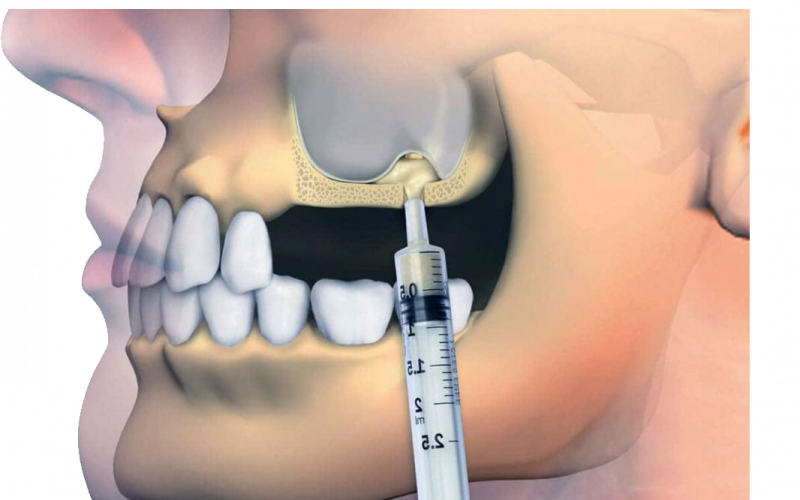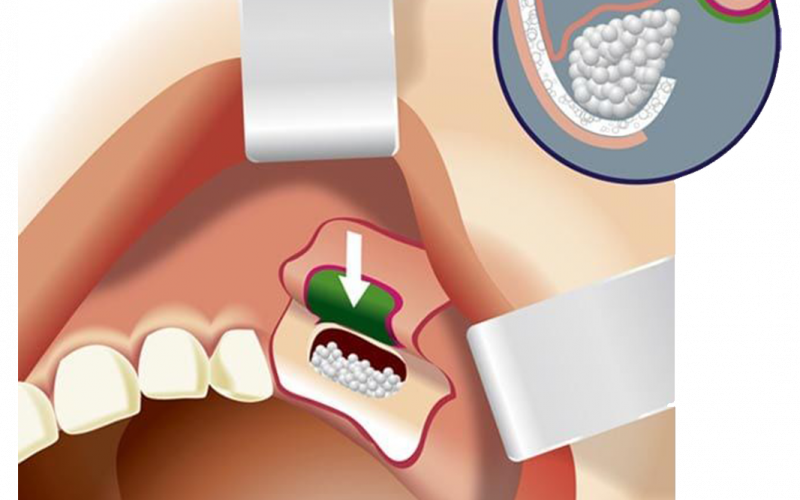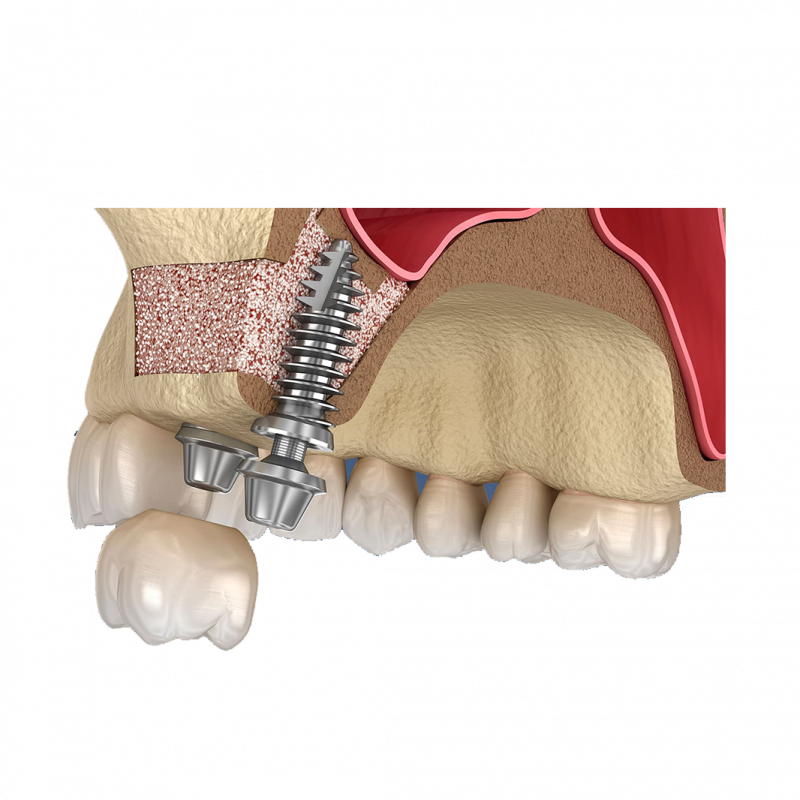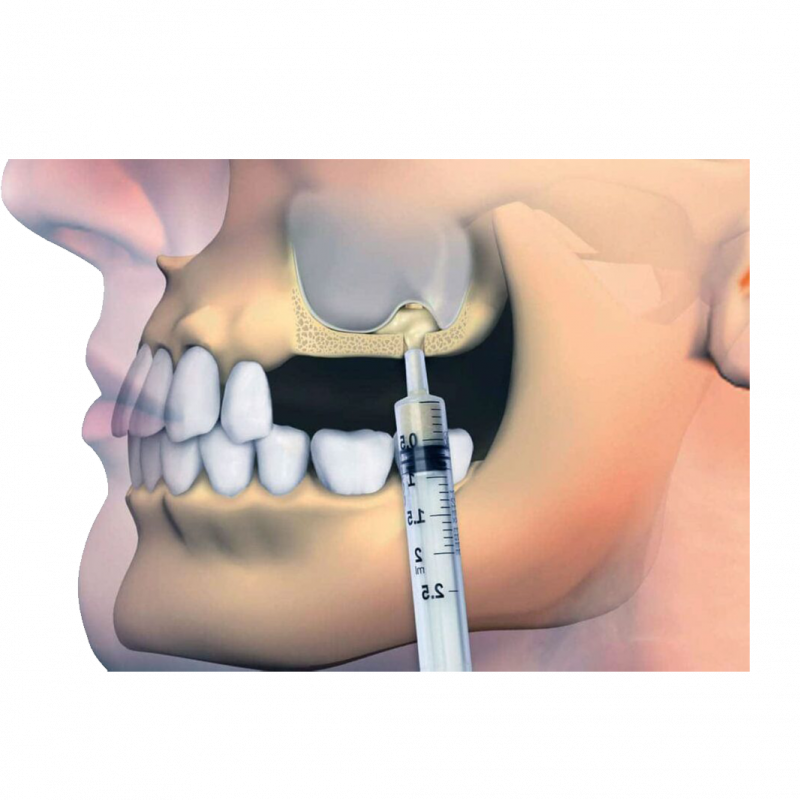What is Sinus Lifting?
A sinus lift is a surgical procedure that some patients need before an implant is placed in their upper jaw. It involves placing a bone graft between the bone of the upper jaw and the closest sinus membrane of the posterior (back) teeth. After the Sinus Lifting procedure, ossification is expected to allow the dental implant to be placed
Why is Sinus Lifting necessary?
Implants are surgically placed in the jawbone. In order for the implants to heal properly (to fuse with the bone), there must be enough bone around them.
As we age and become more toothless, the size of our sinus cavity increases and bone loss occurs. This can also happen after an accident, after a difficult extraction, if you have gum disease or if a cyst or tumor has been removed. In these cases, there is not enough bone height to place the implants in the upper jaw.
Sinus Lifting surgery is a fairly common procedure and should only be performed by an experienced dentist or maxillofacial surgeon. Sedation (semi-sleep) or general anesthesia (full sleep) is offered as an alternative for patients who are anxious and fearful about such advanced surgical procedures.
How much does Sinus Lifting surgery cost?
The cost of this surgery depends on the complexity of the procedure, the amount of graft needed and which biomaterials (materials) are used.
How is Sinus Lifting surgery performed?
After clinical and radiological evaluation, it is determined whether sinus lifting surgery is needed. If sinus lifting surgery is to be performed, it is recommended to have a 3D tomography, i.e. 3D CBCT, from the relevant area.
After administering local anesthesia, the dentist or maxillofacial surgeon makes an incision in the gum, opening a “window” in the jawbone to expose the sinus membrane (membrane). The sinus membrane is then eleviated, i.e. lifted up, with appropriate instruments.
Bone material (bone graft) is placed in this new cavity (the space between the jawbone and the sinus membrane) and a collagen membrane is usually placed on top to hold the bone material in place. The gum tissue is then closed with sutures.
After the procedure, your gums may be swollen for a while and there may be some bleeding from your nose or mouth. You may also feel some pain in your gums, which you should be able to manage with over-the-counter painkillers such as paracetamol and ibuprofen.
After the operation, antibiotics are given to prevent infection and anti-inflammatory drugs are given to control swelling and pain. If no self-melting stitches were placed, a follow-up appointment is scheduled after 7 to 10 days to remove the stitches and check the wound healing.
Depending on the type of biomaterial used in the Sinus Lifting procedure, it usually takes four to six months for the bone graft to integrate with the jawbone.
In the Sinus Lifting session, if there is enough bone of sufficient thickness and quality for implantation, implantation can be performed at the same time.
Otherwise, bone maturation is required for implantation. This period is a minimum of 4 months.









